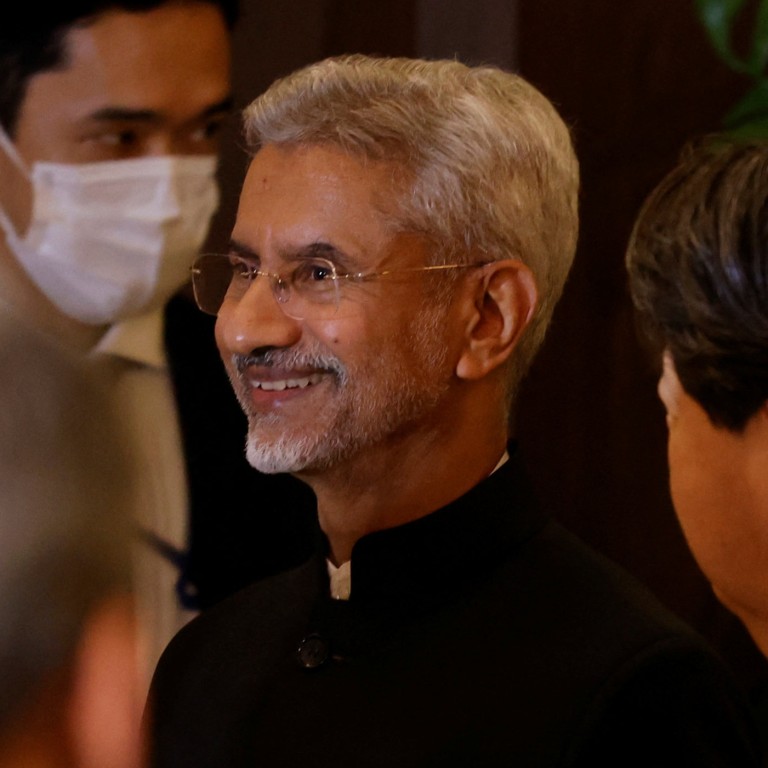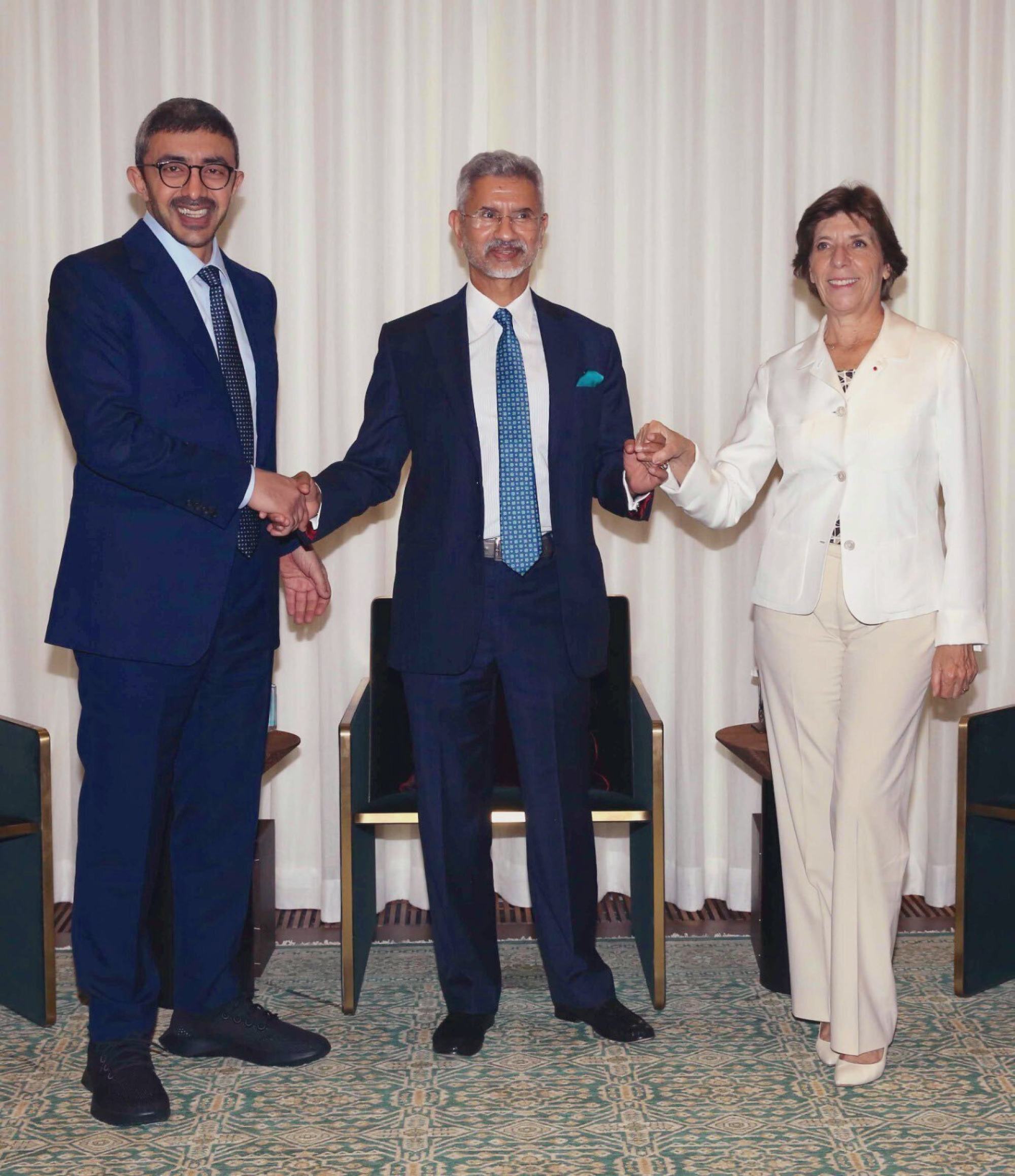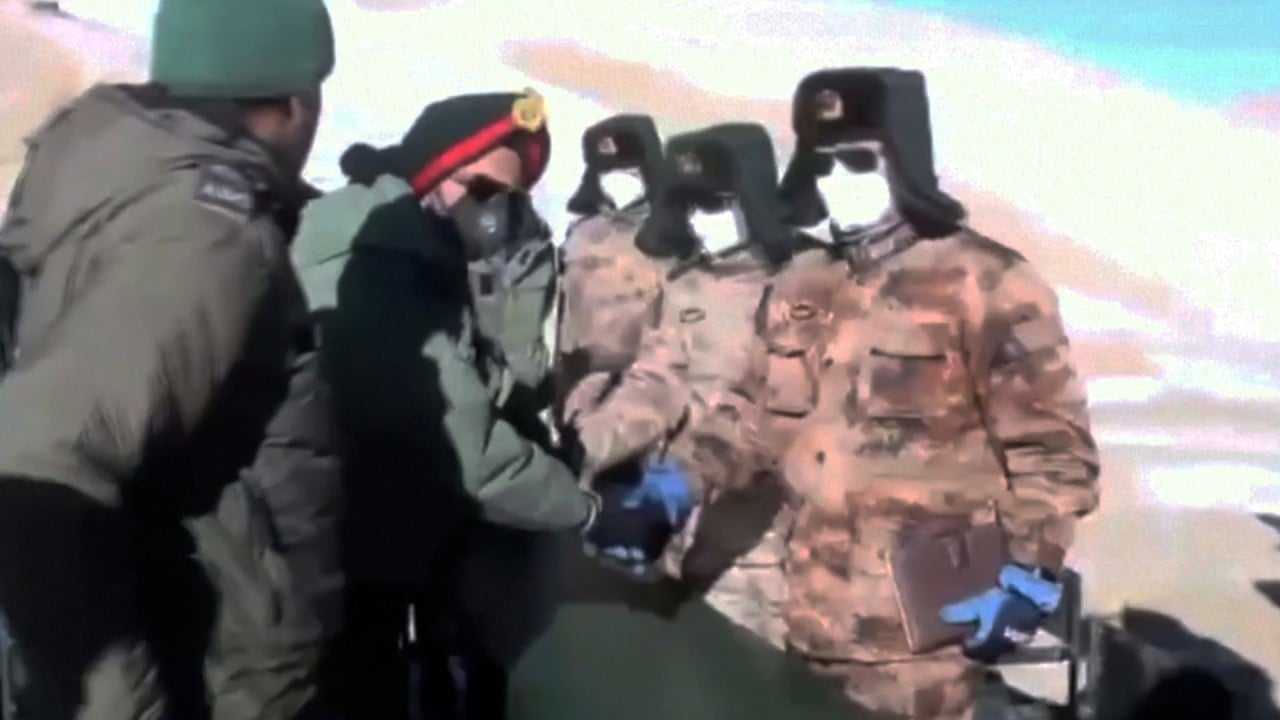
Chill lingers over China-India relations amid Jaishankar’s diplomatic barrage at UN General Assembly
- Leaders gather for the General Assembly and a BRICS foreign ministers meeting is scheduled, but the top Chinese and Indian diplomats have no plans to talk
- The two countries’ disputes threaten to erode the significance of forums like BRICS, the economic grouping of Brazil, Russia, India, China and South Africa
Indian External Affairs Minister Subrahmanyam Jaishankar has unleashed a diplomatic blitz as he meets with envoys and heads of states from around the world on the sidelines of the annual United Nations General Assembly, with more than 50 official engagements scheduled during an 11-day visit to the United States.
But there’s one notable exception in his public itinerary: no bilateral meetings are planned with China, India’s biggest neighbour.
Chinese Foreign Minister Wang Yi is also in New York to attend the UN General Assembly. Though the two leaders will come face to face for a meeting of BRICS foreign ministers this week, India-China ties seem to be frozen.
The diplomatic chill first became apparent with what some described as Chinese President Xi Jinping and Indian Prime Minister Narendra Modi’s “no handshake, no smiles” mutual snub at the Shanghai Corporation Organisation summit last week in Samarkand, Uzbekistan.
Jabin T Jacob, a professor of international relations with a focus on China at Delhi’s Shiv Nadar University, called it an “explicit declaration of the direction of India’s relationship with China”.
He also pointed out that it was the leaders’ first in-person encounter since the May 2020 clashes in the Galwan Valley along the disputed Indo-China border. The skirmishes, among the worst since the 1962 war between the countries, killed at least 11 Indian and four Chinese soldiers.
The stand-off went on for more than two years before multiple rounds of military-level talks paved the way for Indian and Chinese troops to begin disengaging in August. Jaishankar has maintained that “the state of border will determine the state of India-China relationship”.
His last bilateral meeting with his Chinese counterpart was on the sidelines of the G20 foreign ministers meeting in Bali, Indonesia, on July 7, a day after Prime Minister Narendra Modi publicly offered 86th birthday wishes to the exiled Tibetan leader Dalai Lama.
Is India’s latest crackdown on Chinese firms part of a decoupling plan?
In March, Modi reportedly declined to meet the visiting Chinese foreign minister after both China and India refused to condemn Russia for its invasion of Ukraine.
Experts say the India-China disputes threaten to erode the significance of multilateral forums like BRICS, which was founded in 2009 by Brazil, Russia, India, China and South Africa to promote peace, security, development and cooperation among the member states.
Mark Cogan of Japan’s Kansai Gaidai University and Vivek Mishra of Delhi-based Observer Researcher Foundation Strategic Studies Programme said the disagreements “hurt the ability of BRICS countries to coordinate policy routinely or more broadly make disruptions to the Western-led economic and geopolitical status quo”.
They pointed out that the animosities went beyond Chinese troops along the border, and include China’s refusal to support India’s permanent member status on the UN Security Council. In turn, India has been less than supportive of China’s massive Belt and Road Initiative.

In New York this week, Jaishankar will also meet with foreign ministers of “the Quad”. Formally known as the Quadrilateral Security Dialogue, the Quad was reconstituted by India, Japan, Australia and the US in 2017 to counter China’s growing influence in the Indo-Pacific.
Christopher Clary, a professor of international affairs at the University of Albany in New York, said India’s membership in the Shanghai Corporation Organisation and BRICS “creates certain dilemmas for New Delhi, but the alternative of permitting a grouping to work without Indian involvement is even less palatable to the awkwardness of the status quo”.
“Thus we get the seeming incongruity of India participating in BRICS at the same time as it participates in the Quad. Yet in all such forums the primary Indian goal is to safeguard Indian interests,” Clary said.
Jaishankar will address world leaders at the General Assembly on Saturday, after which he will leave for Washington and a meeting with US Secretary of State Antony Blinken.


